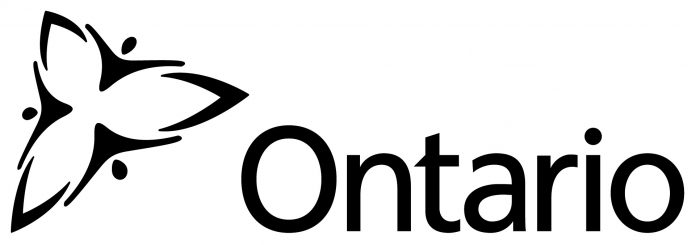Note that teleworking and online commerce are permitted at all times for all businesses.
Supply chains
1. Businesses that supply other essential businesses or essential services with the support, supplies, systems or services, including processing, packaging, distribution, delivery and maintenance necessary to operate;
Retail and Wholesaling
2. Businesses engaged in the retail and wholesale sale of food, pet food and supplies, and household consumer products necessary to maintain the safety, sanitation and essential operations of residences and businesses, including grocery stores, supermarkets, convenience stores, markets and other similar retailers;
3. Businesses that provide essential items for the health and welfare of animals, including feed, animal food, pet food and animal supplies including bedding;
4. Beer, wine and liquor stores and alcohol producers, and stores that sell beer and wine through arrangements with authorized providers; cannabis stores and cannabis producers;
5. Gas stations, diesel, propane and heating fuel providers including providers of motor vehicle, aircraft and water/marine craft fuels;
6. Motor vehicle, auto-supply, auto and motor-vehicle-repair, including bicycle repair, aircraft repair, heavy equipment repair, watercraft/marine craft repairs, car and truck dealerships and related facilities;
7. Hardware stores and stores that provide hardware products necessary to the essential operations of residences and businesses;
8. Business providing pharmaceuticals and pharmaceutical services, including pharmacies and dispensaries;
9. Businesses that supply office products and services, including providing computer products and related repair and maintenance services, for individuals working from home and for essential businesses;
10. Safety supply stores (for e.g. work clothes, Personal Protective Equipment);
Food Services and Accommodations
11. Restaurants and other food facilitiesthat prepare and serve food, but only for delivery or takeaway, together with food delivery services;
12. Hotels, motels, shared rental units and similar facilities, including student residences;
Institutional, Residential, Commercial and Industrial Maintenance
13. Businesses that provide support and maintenance services, including urgent repair, to maintain the safety, security, sanitation and essential operation of institutional, commercial industrial and residential properties and buildings, including, property management services,plumbers, electricians, custodial/janitorial workers, cleaning services, , security services, fire safety and sprinkler systems, building systems maintenance and repair technicians and engineers, mechanics, (e.g. HVAC, escalator and elevator technicians), and other service providers who provide similar services
Telecommunications and IT Infrastructure/Service Providers
14. Businesses engaged in providing or supporting Information Technology (IT) including online services, software products and related services, as well as the technical facilities such as data centres and other network facilities necessary for their operation and delivery;
15. Businesses providing telecommunications services (phone, internet, radio, cell phones etc) as well as support facilities such as call centres necessary for their operation and delivery;
Transportation
16. Taxis and other private transportation providers providing transportation services necessary for activities of daily living;
17. Businesses and facilities that provide transportation services to businesses and individuals including by air, water, road, and rail including providing logistical support, distribution services, warehousing and storage, including truck stops and tow operators;
18. Businesses that provide materials and services for the operation, maintenance and safety of transportation systems (road, transit, rail, air and marine) including delivery of maintenance services such as clearing snow, response to collisions, and completing needed repairs to the transportation systems.
Manufacturing and Production
19. Businesses that extract, manufacture, process and distribute goods, products, equipment and materials, including businesses that manufacture inputs to other manufacturers (e.g. primary metal/ steel, blow molding, component manufacturers, chemicals, etc. that feed the end-product manufacturer);
20. Businesses, facilities and services that support and facilitate the two- way movement of essential goods within integrated North American and Global supply chains.
Agriculture and food production
21. Businesses that farm, harvest, process, manufacture, produce or distribute food, including beverages, crops, animal products and by-products, aquaculture, hunting and fishing;
22. Businesses that support the food supply chain including assembly yards, livestock auctions, food distribution hubs, feed mills, farm equipment suppliers, feed suppliers, food terminals and warehouses, animal slaughter plants and grain elevators;
23. Business that support the safety of food including animal and plant health and animal welfare;
24. Businesses that provide veterinary services, and that supply veterinary and animal control medications and related supplies and testing kits;
25. Businesses that help to ensure safe and effective waste management including deadstock, rendering, nutrient management, bio hazardous materials, green waste, packaging recycling;
Construction
26. Construction projects and services associated with the healthcare sector, including new facilities, expansions, renovations and conversion of spaces that could be repurposed for health care space;
27. Construction projects and services required to ensure safe and reliable operations of critical provincial infrastructure, including transit, transportation, energy and justice sectors beyond the day-to-day maintenance;
28. Construction work and services, including demolition services, in the industrial, commercial, institutional and residential sectors;
29. Construction work and services that supports health and safety environmental rehabilitation projects
Financial activities
30. Capital markets (e.g., the TSX);
31. Banking & Activities related to Credit Intermediation; credit unions;
32. Insurance;
33. Businesses that provide pension services and employee benefits services;
34. Businesses that provide financial services including payment processing, the payroll division of any employer (as defined by theEmployment Standards Act/Occupational Health and Safety Act), any entity whose operation is the administration of payroll, banks and credit unions;
Resources
35. Businesses that ensure global continuity of supply of mining materials and products (e.g. metals such as copper, nickel and gold) and that support supply chains in Northern Ontario including;
a. Mining operations, production and processing;
b. Mineral exploration and development;
c. Mining Supply and Services that ssupport supply chains in the mining industry including maintenance of operations, health and safety.
36. Businesses that provide chemicals and gases to support the natural resource sector analytical labs and drinking water and wastewater sectors and other essential businesses;
37. Businesses that ensure global continuity of supply of forestry products (e.g. lumber, pulp, paper, wood fuel, etc.);
38. Businesses that ensure global continuity of supply of aggregates to support critical infrastructure repairs and emergency response requirements (e.g. sandbags, armour stone barriers, etc.);
39. Businesses that ensure global continuity of supply of petroleum and petroleum by-products;
Environmental Services
40. Businesses that support environmental management/monitoring and spill clean-up and response, including environmental consulting firms, professional engineers and geoscientists, septics haulers, well drillers, pesticides applicators and exterminators, management of industrial sewage/effluent (eg for mining operations), and environmental laboratories;
Utilities and Community Services
41. Utilities, and Businesses that support the provision of utilities and community services, including by providing products, materials and services needed for the delivery of utilities and community services:
a. Waste Collection, Waste/ Sewage Treatment and Disposal, operation of landfills, and Hazardous Waste Disposal;
b. Potable drinking water;
c. Electricity Generation, transmission, distribution and storage;
d. Natural Gas distribution, transmission and storage,
e. Road construction and maintenance;
f. police, fire, emergency services including coroner services and pathology services ;
g. corrections and courts services;
h. other government services including licenses and permits;
42. Businesses engaged in or supporting the operation, maintenance and repair of critical infrastructure (railways, dams, bridges, highways, erosion control structures, etc.);
Communications Industries
43. Newspaper publishers;
44. Radio & Television Broadcasting;
45. Telecommunications providers;
Research
46. Businesses and organizations that maintain research facilities and engage in research, including medical research and other research and development activities;
47. Businesses that provide products and services that support research activities;
Health Care and Seniors Care and Social Services
48. Organizations and providers that deliver home care services;
49. Retirement homes;
50. Long-term Care Facilities;
51. Independent health facilities;
52. Laboratories and specimen collection centres;
53. Manufacturers, wholesalers, distributors and retailers of pharmaceutical products and medical supplies, including medications, medical isotopes, vaccines and antivirals; medical devices and medical supplies
54. Manufacturers, logistics and distributors of products and/or services that support the delivery of health care in all locations (including but not limited to hospitals, labs, long-term care homes, other residential health care, physicians, nurse practitioners and midwives, and home care services);
55. Businesses that provide products and/or services that support the health sector or that provide health services, including mental health and addictions and counselling supports.
56. Businesses that sell, rent or repair assistive/mobility/medical devices, aids and/or supplies.
57. Businesses that provide personal support services (many seniors and persons with disabilities, who can afford to, hire individuals to assist with the activities of daily living).
58. Health care professionals providing emergency care including dentists optometrists and physio-therapists;
59. Not-for-profit organizations that provide critical personal support services in home and also provide residential services for individuals with physical disabilities (such as the Centre for Independent Living and March of Dimes);
60. Businesses and all other organizations that support the provision of food, shelter, safety or protection, and/or social services and other necessities of life to economically disadvantaged and other vulnerable individuals, including but not limited to food banks, violence against women emergency shelters, homeless shelters, community housing, supportive housing, children’s aid societies, residential services for adults with developmental disabilities and for children, and custody and detention programs for young persons in conflict with the law;
Justice Sector
61. Professional and social services that support the legal and justice system;
Other Businesses
62. Rental and leasing services, including automobile, commercial and light industrial machinery and equipment rental;
63. Businesses providing mailing, shipping, courier and delivery services, including post office boxes;
64. Laundromats, dry cleaners and laundry service providers;
65. Professional services including lawyers and para-legals, engineers, accountants, translators;
66. Businesses providing funeral, mortician, cremation, transfer, and burial services, and any related goods and products (such as coffins and embalming fluid);
67. Land registration services, and real estate agent services and moving services;
68. Businesses providing security services including private security guards; monitoring or surveillance equipment and services;
69. Businesses providing staffing services, including temporary help;
70. Businesses that support the safe operations of residences and essential businesses;
71. Businesses that provide for the health and welfare of animals, including veterinarians, farms, boarding kennels, stables, animal shelters, zoos, aquariums, research facilities and other service providers;
72. Child care services for essential workers, and home child care services of less than six children;
73. Businesses providing cheque cashing services;
Business Regulators and Inspectors
74. Organizations, including Administrative Authorities, that regulate and inspect businesses.








